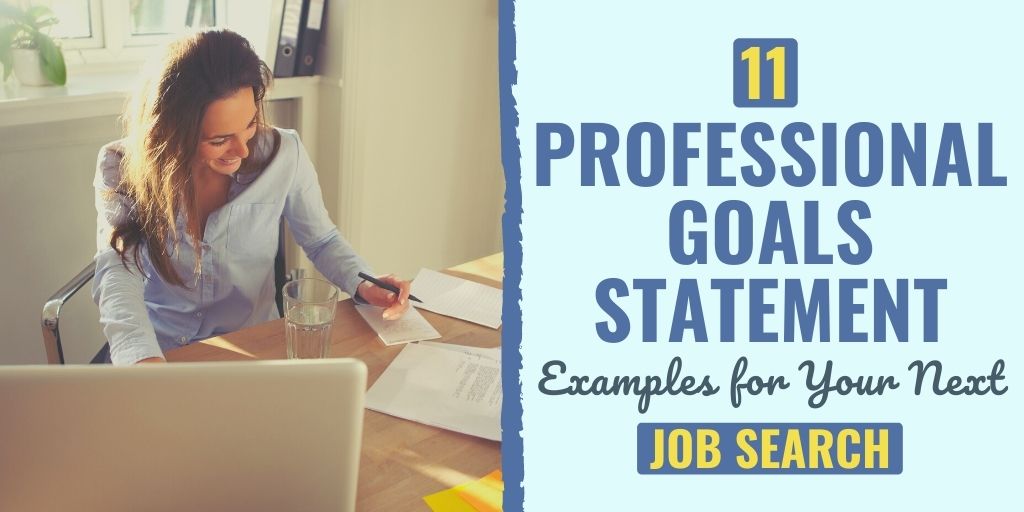Are you among the many who have been professionally affected by the current recession?
Unprecedented unemployment rates have come along with the COVID pandemic.
In fact, all 50 states plus the District of Columbia have reached unemployment rates greater than their highest recorded during the Great Recession–and rates that have not been reached since data started to be collected in 1948.
If you fell victim to layoffs or furloughs, you may still be job hunting, or you may be miserable in a job that you had to settle for in the meantime.
Or, maybe you’ve been able to hang on in your position, but you don’t see it as a “forever” job.
No matter what your professional situation is right now, if you don’t consider it to be your final career destination, you will want to have a plan to help you get wherever you want to go.
When you know what you’re working toward in the long-term, you will feel a sense of direction and purpose that will make going to work each day make a little more sense in the bigger picture of your life.
So in this article, we will look at how you can create your professional plan through a career goals statement by looking at 11 specific examples of these statements that you can use for your next job search.
But first, let’s review what a career goals statement is and why you should create one. Then, after reading the examples provided, you can tweak them to fit your own unique situation.
Let’s get started.
What is a Professional Goals Statement?
A professional goals statement is a clear and specific proclamation of the end result you expect to achieve by accomplishing all of your professional objectives.
Similar to a SMART goal, it clearly states why you do your job, what you intend to achieve, how you’re going to achieve it, and when it will be completed.
This concise statement defines your professional vision, which will help you plan your next career move and communicate your intentions to potential employers.
Here's a video that provides a quick overview of the SMART goal setting and various examples for each area of your life.
No matter what industry you’re in, writing a professional goals statement will help you develop a specific action plan that will guide you toward your professional vision. Your finished statement will give you clarity as you’re working toward your goals and it will keep you motivated and accountable.
Without a professional goals statement, your job is likely going to end up being a passionless pursuit of a bi-weekly paycheck.
You need a target to focus on to maintain the motivation to improve and grow in your career. Your goals statement will turn each day at work from “just another day” to one day closer to achieving your professional dream.
But before looking at some examples, let’s review how to write a career goals statement so you can tailor the examples to your unique professional goals.
How to Write a Career Goals Statement
Keep these tips in mind when writing your statement.
Why?
The first question you want to answer is “why?” Without having a purpose behind what you’re doing, your work will be meaningless in the long run and you won’t have the motivation to give it your best effort.
Why is your career interesting to you? What type of lasting change (if any) are you hoping to make? How do your natural strengths line up with the job requirements?
Thinking about these things will help you create a goal that you want rather than one that you think you should have. And you have to want to achieve your goal in order to feel inspired to get to work.
Commit to It
Be confident in your statement–and not just the end result you’re working toward, be confident in the process that will get you there as well. In order to commit to your goals statement, you need to be aware of all the steps you have to take to be successful.
This may require doing some research on the specific professions in your field of work so you can make sure the obstacles you could face won’t overpower your will to succeed.
Research and Plan
Speaking of research, make sure you have the skills, education, knowledge, abilities, and experiences that are required to be successful.
Think about all of the steps you will have to take along the way and include them in your statement. Your career goal should have clear instructions that lead you from the present moment to the finish line.
Don’t Invite Change
While things may come up in your life that force you to alter your course, plan on going full speed ahead until you reach your goal. Don’t leave any components of your career goals statement up for interpretation–anyone should be able to read your statement and understand your plan.
…But Be Flexible
Your goals may change over time as you grow and your life circumstances change. Your professional goals statement should look way into your future, so unexpected events or factors are almost guaranteed to pop up. You need to be able to work around life’s challenges and not let them steer you off track.
Let’s take a look at what this looks like when it all comes together.
11 Professional Goals Statement Examples for Your Next Job Search
1. I will take a step up in my career from being an office assistant to a paralegal in the next four years.
I will earn any credentials I need through a Paralegal Studies program, get an internship with a reputable law firm, go to legal networking events, and practice my legal writing skills to meet this goal.
2. I will open my own agency in the next five years that provides medical respite for those in need of housing after a hospital discharge.
I will accomplish this by setting up informational interviews with those who currently own this type of business, obtaining a business loan and license, purchasing a house in the community to house those in need, and attending social events to make connections in order to properly staff the business.
3. I will be promoted to Senior Case Manager at my current organization within the next two years.
To do this, I will obtain a case management certification, refine my case management skills by networking with other case managers, and communicate my goal for advancement to my supervisor to gain her support.
4. I will change careers by 2025 from being a sales manager to being an accountant.
In order to do this, I will go back to school to get a bachelor’s degree in accounting and work alongside my current company’s accountant for at least three hours per month in order to gain real-life experience.
5. I will obtain my Real Estate license within a year by completing 60 hours of approved Pre-Licensing courses and creating an intensive study plan that includes two hours of studying four times per week in order to earn an 80% or above on the licensing test.

6. I will become a Clinical Research Manager by 2030 by pursuing a master’s degree in biology and certification with the Society for Clinical Data Management.
In doing this, I will gain an in-depth knowledge of regulations and best practices for clinical trials and become familiar with medical terminology, which will help me secure a relevant position.
7. I will learn to speak Spanish fluently within three years to become a more valued and indispensable member of my team. I will do this by using language-learning software, subscribing to Spanish media, and practicing speaking Spanish with those who are already fluent.
8. I will publish five books in two years by writing for 25 hours per week, completing at least 10,000 words on subjects I’m passionate about.
I will learn more about self-publishing by reading at least three books on the topic, which will help me keep my skills current. I will land on at least two best-seller lists by creating a website for my books to gain more readers, hold book signings after each book is published, and engage with fans both online and in-person.
9. I will be promoted to a leadership position within my current company in the next 5 years.
I will do this by modeling my passion for the industry to my peers, improving my interpersonal communication skills, serving as a role model, holding myself accountable for my work, and inspiring others to do their best work as well.
10. My professional goal is to increase our membership by 20% by 2025. I will do this with my team by holding bi-weekly informational cocktail hours at the facility and offering incentives for current members to refer people they know for membership.
11. I will open a second branch of my business within the next two years by creating a business and marketing plan, building capital and setting up accounting, hiring employees, and purchasing inventory.
Final Thoughts on Professional Goals Statements
Goals are very motivating factors to have in your professional life. They will help inspire you to get your work done because you will have a clear vision of what you’re working toward and what you need to do to get there. (Learn the differences between vision and goals.)
Once your goal is documented, you will feel a sense of personal responsibility to complete it.
Take the examples of statements in this article and see if you can tailor any of them to your individual career goals. Doing this is sure to make your goals stick and increase your chances of being successful in your next job search.
The process of writing this statement will force you to consider the hard questions– like what you want for your professional life down the road.
And if you're looking for more resources to help you write professional goal statements, here are some articles that might help:
- 87 Action Verbs for SMART Goals
- 365 Positive Words to Use Daily [A to Z]
- 4 Simple Steps to Write a Career Goal Statement for Work
Finally, if you want to take your goal-setting efforts to the next level, check out this FREE printable worksheet and a step-by-step process that will help you set effective SMART goals.

Connie Mathers is a professional editor and freelance writer. She holds a Bachelor's Degree in Marketing and a Master’s Degree in Social Work. When she is not writing, Connie is either spending time with her daughter and two dogs, running, or working at her full-time job as a social worker in Richmond, VA.


